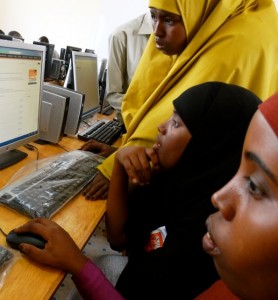The gender situation in East Africa, in general, and the Dadaab refugee camps, in particular, is not any different from what persists across Africa. Presently, and quite unsurprisingly, girls are woefully under-represented at all levels of education in the Dadaab refugee camps as well as the host communities in the Garissa and Wajir counties of Kenya. Girls have limited access to education—a situation couched in long-standing traditions and cultural practices by which girls and women are required to do the bulk of household chores and to take care of children, the elderly, and the sick. The acute dearth of transportation, security, and sanitation facilities to cater for the specific needs of girls and women in schools has also compounded the inequity. In a vicious cycle of a sort, the resultant low enrolment of girls in both primary and secondary schools has yielded only a small number of women teachers in the camps and surrounding communities. Thus, as is true of many other such social problems, the more female teachers are needed at the camps the less readily they are available!
It is within the preceding context that the BHER’s Gender and Equity Committee (GEC) was formed, with the hope that with its prompting and guidance, all the participating institutions will abide by a set of principles aimed at addressing years of gender inequity in education at the Dadaab refugee camps. Among its specific goals are efforts to promote gender equality in all programs offered by BHER affiliated institutions, especially as they pertain to the recruitment and retention of girls and women in in these programs; to advice the BHER team on gender and equity issues, including those stipulated by DFATD’s Gender Equality Policy, and the United Nations Security Council’s Resolutions 1323 and 1820; and to collect, analyze, and disseminate relevant information on gender equality to BHER partners. GEC also advices the BHER team on other equity issues including addressing the needs of people with disabilities and those belonging to ethnic minorities in the Dadaab camps.
Currently, GEC has a membership of some fourteen people, pulled from all the BHER participating institutions and other individual researchers who have been involved with BHER since its inception. The Committee is co-chaired by Joseph Mensah of York University and Wanjiku Khamasi of the University of Eldoret. With many of its members working in various places in Africa and Canada, GEC conducts most of its quarterly meetings virtually with the help of telecommunication technology such Skype, Webex, and other platforms, all of which is coordinated out of the BHER office at the Center for Refugee Studies (http://crs.yorku.ca/) at York University.




